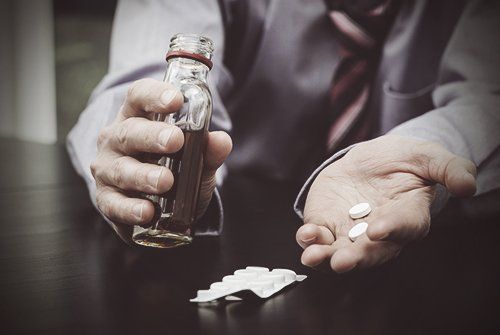Alcohol & Drug Abuse
What Is drug addiction?
Addiction is a chronic disease characterized by drug seeking and use that is compulsive, or difficult to control, despite harmful consequences. The initial decision to take drugs is voluntary for most people, but repeated drug use can lead to brain changes that challenge an addicted person’s self-control and interfere with their ability to resist intense urges to take drugs. These brain changes can be persistent, which is why drug addiction is considered a "relapsing" disease—people in recovery from drug use disorders are at increased risk for returning to drug use even after years of not taking the drug.
It's common for a person to relapse, but relapse doesn't mean that treatment doesn’t work. As with other chronic health conditions, treatment should be ongoing and should be adjusted based on how the patient responds. Treatment plans need to be reviewed often and modified to fit the patient’s changing needs.
What happens to the brain when a person takes drugs?
Most drugs affect the brain's "reward circuit" by flooding it with the chemical messenger dopamine. This reward system controls the body's ability to feel pleasure and motivates a person to repeat behaviors needed to thrive, such as eating and spending time with loved ones. This overstimulation of the reward circuit causes the intensely pleasurable "high" that can lead people to take a drug again and again.
As a person continues to use drugs, the brain adjusts to the excess dopamine by making less of it and/or reducing the ability of cells in the reward circuit to respond to it. This reduces the high that the person feels compared to the high they felt when first taking the drug—an effect known as tolerance. They might take more of the drug, trying to achieve the same dopamine high. It can also cause them to get less pleasure from other things they once enjoyed, like food or social activities.
Long-term use also causes changes in other brain chemical systems and circuits as well, affecting functions that include:
- learning
- judgment
- decision-making
- stress
- memory
- behavior
Despite being aware of these harmful outcomes, many people who use drugs continue to take them, which is the nature of addiction.
Why do some people become addicted to drugs while others don't?
No one factor can predict if a person will become addicted to drugs. A combination of factors influences risk for addiction. The more risk factors a person has, the greater the chance that taking drugs can lead to addiction. For example:
Biology
The genes that people are born with account for about half of a person's risk for addiction. Gender, ethnicity, and the presence of other mental disorders may also influence risk for drug use and addiction.
Environment
A person’s environment includes many different influences, from family and friends to economic status and general quality of life. Factors such as peer pressure, physical and sexual abuse, early exposure to drugs, stress, and parental guidance can greatly affect a person’s likelihood of drug use and addiction.
Development.
Genetic and environmental factors interact with critical developmental stages in a person’s life to affect addiction risk. Although taking drugs at any age can lead to addiction, the earlier that drug use begins, the more likely it will progress to addiction. This is particularly problematic for teens. Because areas in their brains that control decision-making, judgment, and self-control are still developing, teens may be especially prone to risky behaviors, including trying drugs.













